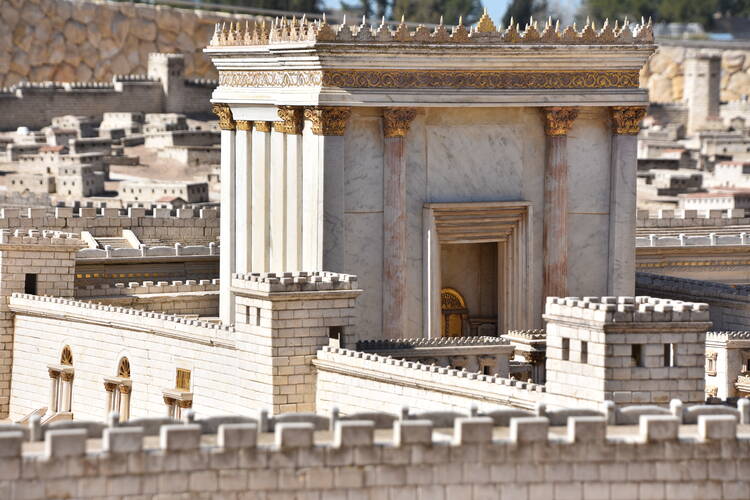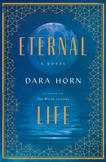Born again (and again, and again, and again): Dara Horn’s new novel
“‘Yochanan is alive. God answered our prayers.’
Elazar looked at her, unsmiling. ‘Not prayers,’ he said. ‘Vows.’
Was there a difference?”
Rachel, the protagonist of Dara Horn’s beguiling new novel, Eternal Life, has a lot of time to learn the great difference between a prayer and a vow: an eternity, in fact. Born in first century Jerusalem, by her late teens she is faced with the impending death of her young son, Yochanan, whom she had following an affair with Elazar, a young priest. After assorted remedies, prayers, offerings and sacrifices fail to improve the boy’s condition, Rachel seeks the help of the high priest of the temple. To save the child, he explains, she must make the greatest sacrifice. She agrees. In Horn’s handling, however, Rachel’s dying for her son is not the needed sacrifice: instead, in exchange for her son’s living, Rachel has to vow to God that she will live on earth forever.
Out of this strange and unexpected premise, Horn has written a story that spans continents, centuries, and generations. Rachel is at the center of these great sweeps, as a wife and mother who repeatedly reaches the end of her days through scenarios ranging from the heroic to the harrowing to the banal, only to be reborn, each time, at eighteen. Throughout these experiences another person remains a constant, her former lover Elazar, who, we learn, also made an eternal vow to save their son. Trailing after her through life after life, he is at once a comforting presence and an enraging reminder of Rachel’s predicament, and is himself consumed with one question that she keeps inspiring him to pose: “‘Why do you keep marrying everyone but me?”
Out of a strange and unexpected premise, Dara Horn has written a story that spans continents, centuries and generations.
The richness and drama, both interpersonal and historical, of the lives that Rachel enjoys independent of Elazar offer an ample answer. Among these, the most memorable are the earliest, when, as the strong-willed and faithful daughter of a prominent scribe in Jerusalem, she perceives intensely that “the world was full of the weight of God’s presence,” and the latest, when she makes plenty of jokes with her contemporary American grandchildren about being very old, jokes that range in ironic effect from gentle to devastating. This latter setting also involves an unnerving gambit by her granddaughter Hannah. She is working on a Google-funded bio-engineering project whose goal is to edit aging itself out of our genes. In a persuasive reading of our shiny, mundane times, Horn brilliantly juxtaposes Hannah’s lightly-worn hubris and myopic optimism, borne of technophile self-confidence, with the joy-unto-tribulation that Rachel has endured, for centuries, out of love.
And even if she might be forgiven, after two thousand years, for thinking otherwise, by the end of Eternal Life, when reflecting on the past and future lives of her hundreds of children, Rachel insists “it was worth it, it was worth it, all of it was worth it.”
This article also appeared in print, under the headline “Reborn: again and again,” in the April 16, 2018, issue.











